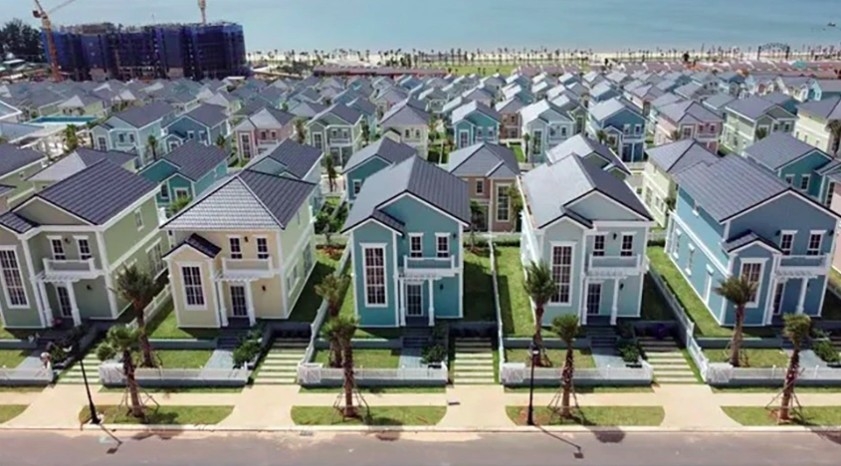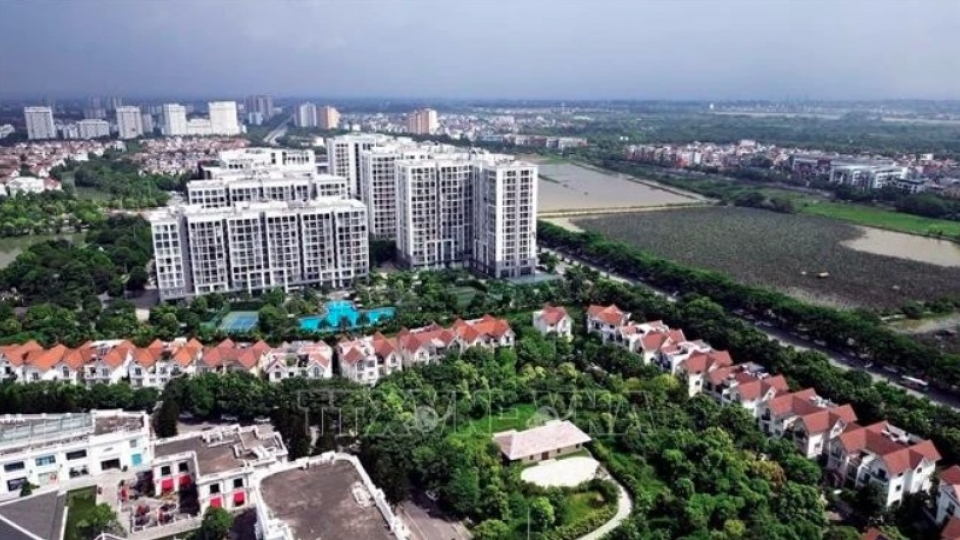Property tax under consideration to rein in surging real estate prices
VOV.VN - Recent surges in housing and land prices in Hanoi, Ho Chi Minh City, and surrounding areas have affected public access to home ownership. In response, the Government has tasked the Ministry of Finance with studying property taxation as a tool to help stabilise the market.

At a recent meeting with local authorities to review three years of carrying out Resolution 18 on land management and use, Deputy Prime Minister Tran Hong Ha stressed the need to reassess tax policy, particularly in relation to abandoned or inefficiently used land. He proposed applying progressive tax rates in such cases but cautioned that taxation measures must not conflict with the ongoing policy of land consolidation in agriculture. He emphasized that the tax must target real estate speculators specifically, rather than being applied indiscriminately.
According to the Ministry of Construction, the number of transactions in the first quarter involving condominiums, private homes, and land plots increased by 16% to 32% over the previous quarter, while prices continued to trend upward. The market is also facing an imbalance between supply and demand, with a misalignment in product structure.
Nguyen Anh Que, member of the Vietnam Real Estate Association, noted that recent price spikes in major urban centres have reduced affordability. In this context, he said the Government's move to assign the Ministry of Finance to study property taxation is a step toward cooling the market.
However, Que pointed out that Vietnam is targeting double-digit economic growth, public investment is on the rise, and the real estate sector plays a pivotal role as a core engine of growth.
He said the Government now faces a difficult dilemma as it seeks to regulate the market through taxation while still encouraging growth in the real estate sector.
Que proposed that taxes be levied starting from the second property, specifically on residential houses and land. He recommended exempting second properties inherited from parents for ancestral worship. In cases where individuals purchase additional properties for their children, formal procedures such as gifting or transfer of ownership should be required.
He also suggested piloting the new tax in Hanoi and Ho Chi Minh City, with progressive rates based on the number or value of properties held. Additionally, he proposed taxing abandoned properties, contingent on clear criteria and proper authority to assess such cases. For property transfers, he recommended a sliding tax scale: 6% for resale within six months; 5% for 6–12 months; 4% for 12–18 months; 3% for 18–24 months; and 2% for over 24 months.
Economist Pham The Anh supported taxation on second homes as a means to curb speculation and hoarding, which have led to “ghost cities” and scarcity in the secondary market. He argued that Vietnam should seriously consider this policy due to its multiple benefits.
“As the cost of holding a second home increases due to taxation, owners may be more inclined to use the asset efficiently by renting, putting it into business use, or selling it,” he explained.
He added that such taxes could boost supply, help bring down prices, and create a more transparent, efficient, and less wasteful market.
According to The Anh, imposing property taxes would increase supply, ease pressure on housing prices, promote a healthier market, and prevent resource waste.




